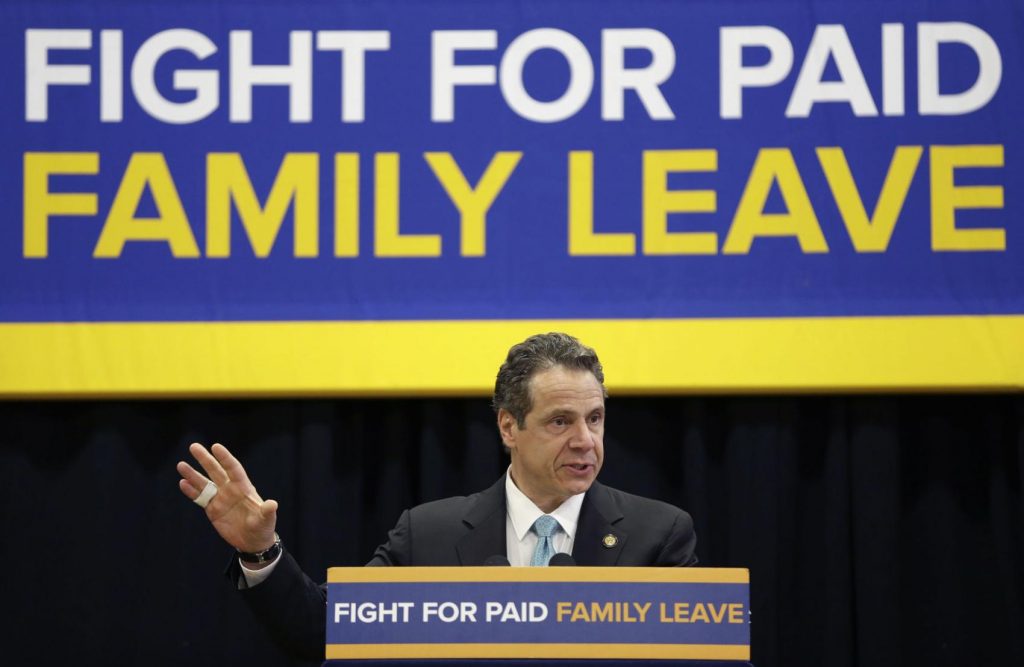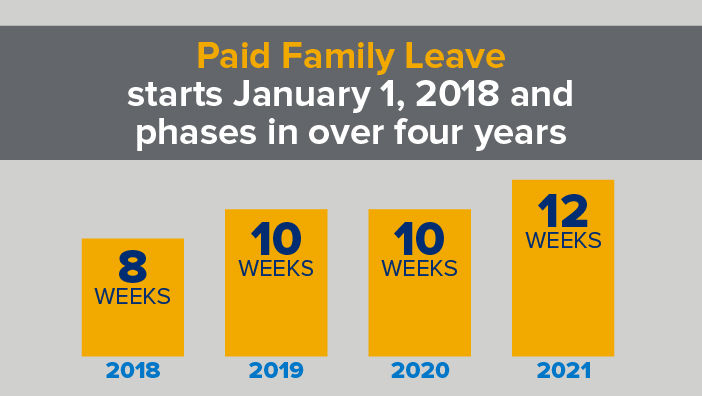Employees Will Be Eligible For 10 Weeks Paid Time
By Karen L. Zdanis
Beginning January 1, 2019, employees who work for a private company in New York State who have worked 26 consecutive weeks as a full-time employee, or 175 days as a part-time employee, may be eligible for Paid Family Leave.
The amount of paid leave time the law provides is on a sliding scale, and will gradually increase to 12 weeks by the year 2021. As of this year, employees will be eligible for 10 weeks of paid time off, and will be paid a rate of 55% of an employee’s average weekly wage, up to 55% of the New York State Average Weekly Wage. The maximum weekly benefit for 2019 is $746.41.
The law mandates paid family leave for employees who have worked a minimum of 26 weeks, and who regularly work a schedule of 20 or more hours per week
The law mandates paid family leave for employees who have worked a minimum of 26 weeks, and who regularly work a schedule of 20 or more hours per week. It provides a phased-in plan that will ultimately provide up to 12 weeks of paid family leave per employee. It also affords paid time for part-time employees who work more than 175 days for their employer.
Private employers with one or more employees are required to have Paid Family Leave insurance that pays employees benefits when they qualify for paid leave time. The insurance coverage is generally added to an employer’s existing disability benefits policy.
 This is the second year the NY PFLBL is in effect. In 2016 Mario Cuomo signed into law a bill sponsored by Democratic Assemblywoman Catherine Nolan of Queens (and co-sponsored by over 37 other assembly members). It is one of the most comprehensive family leave benefits legislation in existence, entitled the New York Paid Family Leave Benefits Law (NY PFLBL). It is an amendment to the Workers’ Compensation Law.
This is the second year the NY PFLBL is in effect. In 2016 Mario Cuomo signed into law a bill sponsored by Democratic Assemblywoman Catherine Nolan of Queens (and co-sponsored by over 37 other assembly members). It is one of the most comprehensive family leave benefits legislation in existence, entitled the New York Paid Family Leave Benefits Law (NY PFLBL). It is an amendment to the Workers’ Compensation Law.
Employees who qualify must fit into one of three categories:
(1) who have new infant, adopted or fostered child, or (2) who need to care for a family member with a serious health condition, or (3) who need to assist loved ones when a family member is deployed abroad on active military service.
Employers will not pay the benefits, rather they will be paid by a state insurance fund financed by deductions taken directly from employees’ wages. The insurance is funded by mandatory employee contributions.
Employers need to be aware of the law and need to make sure they have insurance and are taking deductions out of their employees’ paychecks for the state fund. Employers also need to post a PFL-120 notice and include the policies in their handbooks. Upon an inquiry from an employee, the employer must also provide request forms, which can be provided by your insurance company or the New York Department of Labor.
While the bill undoubtedly provides benefits for employees, businesses bear the additional burden of paperwork and insurance coverage. It will benefit employers who already offer paid leave to employees because employers might be able to request refunds for amounts paid from the insurance carriers.
The Zdanis Law Firm is a boutique firm that focuses on employment and discrimination cases. The firm has offices in Nanuet, Bergen County, and NYC.








